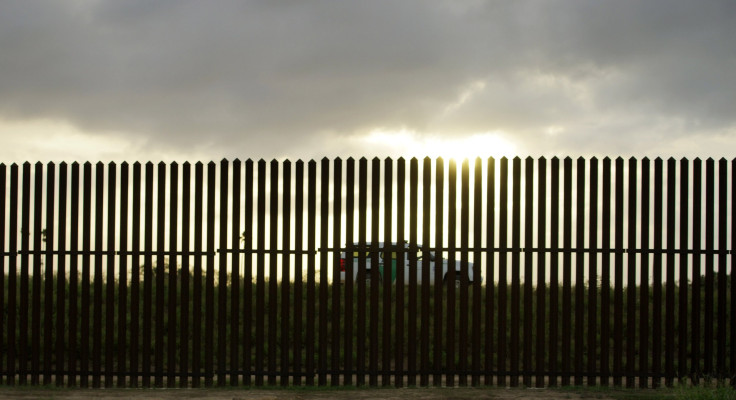Protesters Decry Border Patrol Militarization, Racial Profiling Of Immigrants In Arizona

Protesters decried the militarization of border patrol agents and checkpoints on Wednesday in six Arizona border communities. The protesters approached the border checkpoints, where motorists are asked for proof of citizenship, carrying signs and dark blue umbrellas over their head with “Justice” painted on in big white letters to protest the unwanted aggressive presence in their communities.
The checkpoints, which are placed on roads within 100 miles of the border and require motorists to stop and provide proof of citizenship to federal border agents, are considered necessary by the federal government to ensure the security of the border.
Activists said the border checks are intrusive and invite racial profiling. “It seems like a war zone all the time,” said Patty Miller, a 31-year Arivaca resident with a megaphone yesterday, according to the Los Angeles Times.
Other protesters were upset with the rising death toll of undocumented immigrants crossing into the United States from Mexico. They blame security and large fences in places like the Tucson corridor for funneling migrants into inhospitable territory where they die under the hot Arizona sun.
“A lot of community members out hiking the hills around their homes have found dead bodies,” said Eva Lewis, a volunteer with the group People Helping People in the Border Zone, which provides aide to border crossers, according to Public News Service. “We as border residents are dealing with this human tragedy all around us every day. I've had people knock on my door who haven't seen another human, spoken to another human, or drank water -- clean water -- in over 15 days.”
In the Tucson sector alone, there were 4,052 staffed Border Patrol agents in 2014. Between 2004 and 2011, the number in the ranks doubled to 20,000 agents. The Border Patrol’s budget in 2014 was $3.6 billion, the highest since at least 1990.
Nationally, a heated debate has taken place on how to address undocumented immigrants in the country. At the end of 2014, President Barack Obama announced an executive order to provide temporary relief for millions of immigrants in the country illegally. Congressional attempts to overhaul the system in recent years have failed.
© Copyright IBTimes 2024. All rights reserved.





















